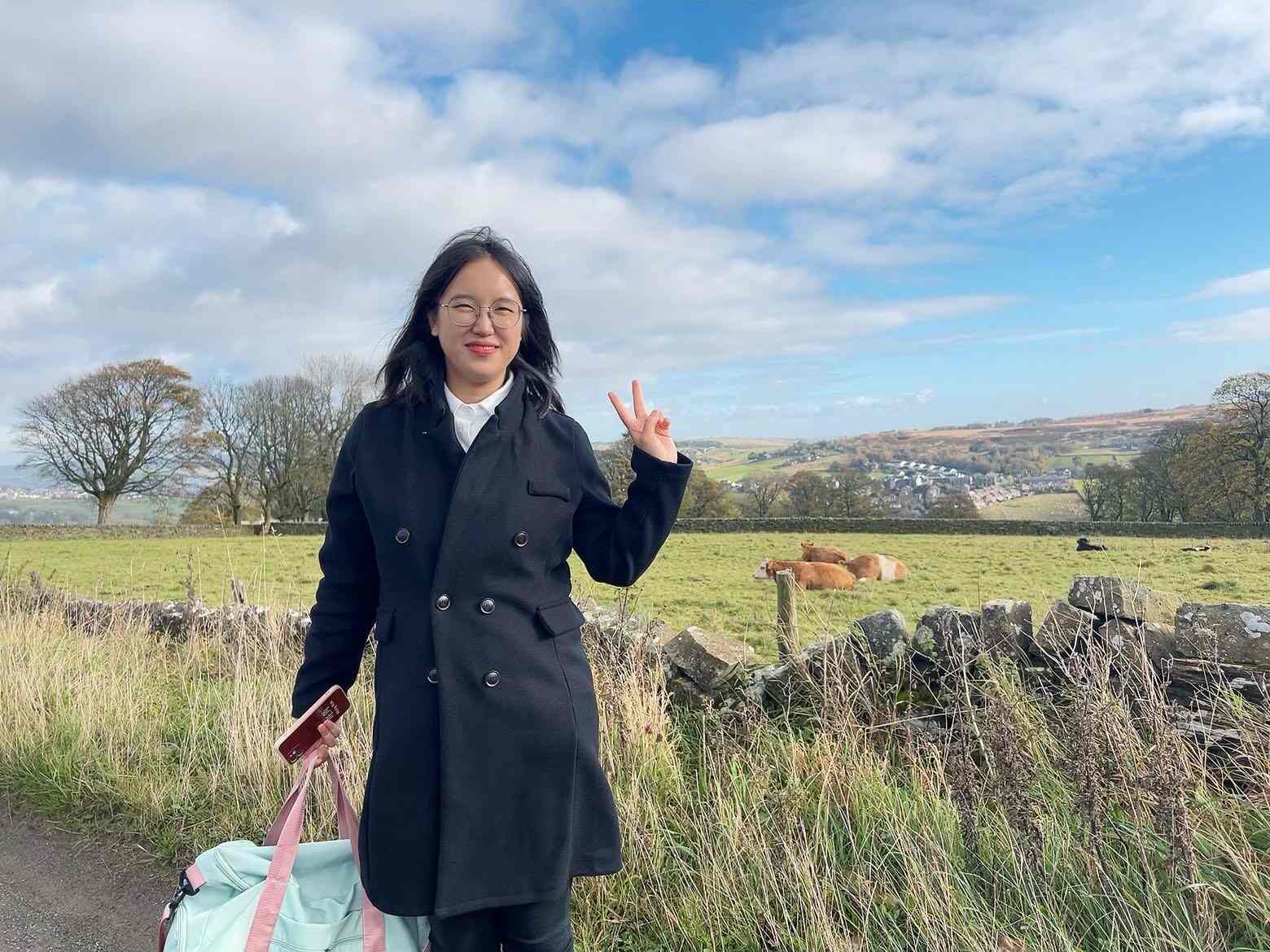Li Linling, Chengdu, China
MA TESOL

What course are you currently studying?
I am currently pursuing a master's degree in TESOL (Teaching English to Speakers of Other Languages) at the University of Liverpool. In the first semester, I chose to study four modules: Practical Classroom Techniques, Lexis and Vocabulary Teaching, Second Language Acquisition (SLA), and Teaching English to Young Learners (TEYL).
Why did you choose to study at the University of Liverpool?
When I was applying to universities in the UK, I received offers from 4 or 5 schools, including ones with higher QS rankings. However, I chose the University of Liverpool without hesitation because I was deeply drawn to its music and culture. During my undergraduate studies, my English teacher introduced us to an article about The Beatles, specifically discussing their song Imagine. I was even called upon to share my interpretation of the song in class. At my university's freshman welcome party, I performed Hey Jude. These experiences created a special connection between me and Liverpool, a city known for its musical heritage. Naturally, I was eager to experience the city that gave birth to The Beatles. Additionally, I have a strong interest in Western culture, particularly Western music. I am a fan of Taylor Swift, and I have her albums and an autograph at my home in Chengdu. Studying in Liverpool allows me to explore its music and cultural scene while pursuing my academic goals.
What’s the best thing about studying your programme?
The best part of this programme is how the instructors seamlessly integrate theory with practice, rather than focusing solely on theoretical learning. Before joining this programme, I worked briefly as a teaching assistant, but I had neither practical teaching experience nor a solid foundation in teaching theory—in essence, I was a complete novice in the field.
On this programme, the instructors create simulated teaching scenarios where we take on the role of the teacher, allowing us to identify areas for improvement while gaining valuable hands-on experience. At the same time, the programme provides a wealth of teaching theory that complements these practical exercises. I truly feel that I am being guided step by step into the teaching profession.
How do the facilities and/or staff help you with your studies?
One of the highlights of studying here is the dedication and patience of the lecturers. Although my undergraduate studies and previous work experience were unrelated to languages, the instructors here have been incredibly supportive, making unfamiliar terminology easier to understand. I also find the Panopto recording feature on Canvas extremely useful. As an international student, it’s common to miss or misunderstand a word or phrase during lectures. The ability to review class recordings helps me revisit and clarify those points.
Did you access any of the support services available to you? If so, how did you find the service?
The university offers excellent academic support through resources like the KnowHow programme. During Welcome Week, the library staff provided a detailed guide on using the library’s website, which included instructions on booking study spaces, borrowing and returning books, and attending various workshops. I found this support invaluable for my studies.
What has been your highlight of your time at Liverpool so far?
My time at the University of Liverpool has helped me develop essential skills like communication, collaboration, and independent living. In class, we frequently work on group projects, which has strengthened my teamwork abilities. Outside class, I’ve become more self-sufficient: I rarely cooked in China, but my cooking skills have improved significantly since moving to Liverpool and I even became a Chinese teacher here. For instance, I spend two hours every weekend teaching Mandarin, I even try to apply the practical skills I learned in Teaching Young Learners’ lessons and knowledge in Second Language Acquisition with the students who study Mandarin as a second language. My students are native English speakers, and this experience not only helps me build confidence as a teacher but also allows me to learn new English expressions through interactions with them. It’s been an enjoyable and rewarding experience.
How do you believe undertaking postgraduate study will help your career prospects?
The TESOL programme at Liverpool places great emphasis on practical experience, which I find crucial for my future career. In China, schools prefer hiring graduates who can immediately step into teaching roles, making hands-on experience vital. The programme’s balance between academic theory and practical application provides numerous opportunities for us to practice teaching.
For anyone considering a career as an English teacher, studying in the UK is an excellent choice. The immersive language and cultural environment provide invaluable benefits. The TESOL programme at Liverpool enhances academic writing skills, practical teaching abilities, and spoken fluency. I’ve noticed significant progress in my English speaking, particularly in terms of fluency. I believe I can become a good teacher in the future with the help of Liverpool.
What advice would you give to anybody considering postgraduate study at Liverpool?
The University of Liverpool’s convenient location near the city centre is one advantage, as it makes daily life much easier for international students. The locals are warm and friendly, and the city's football culture creates an incredibly vibrant atmosphere. So one of my suggestions is to choose the right place to live.
Another advice to future TESOL students at Liverpool is to actively engage with lecturers and participate in classroom discussions. This is a great way to improve your spoken English. Take every opportunity to speak in front of an audience—it helps build confidence and presence, which are areas I’m still working on myself. Since our field requires frequent interaction with people, I also recommend spending your free time exploring the city and interacting with locals. Immersing yourself in the local culture is far more beneficial than staying indoors. These are my personal thoughts and experiences, and I hope they’re helpful.